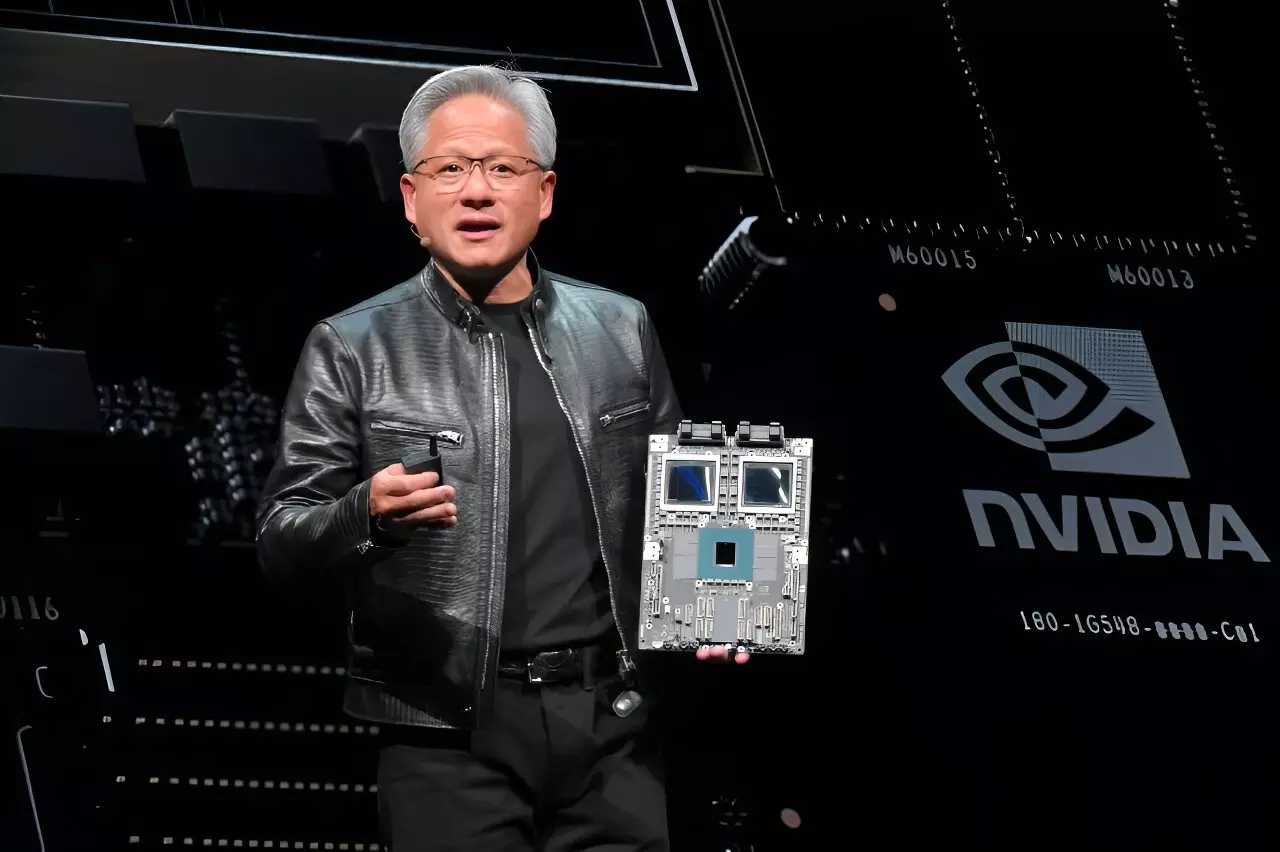Nvidia, a leading AI hardware company, recently showcased new products and strategies to push forward the advancement of artificial intelligence. CEO Jensen Huang made a significant impact during his presentation at Computex in Taipei, declaring that the “next industrial revolution has begun.” The event brought together top semiconductor CEOs, including those from AMD, Intel, and Qualcomm, to discuss the future of AI in technology.
Huang highlighted Nvidia’s role in transforming traditional data centers into accelerated computing centers, referred to as “AI factories.” These facilities aim to produce artificial intelligence as a new commodity, reshaping various industries. One of the notable introductions was Nvidia ACE generative AI, capable of creating lifelike human avatars for applications such as customer support. Prominent tech companies like Foxconn and Siemens are already utilizing Nvidia’s platforms to develop AI-powered autonomous robots.
While presenting the Blackwell platform, Huang also shared plans for an “ultra” version to be launched in 2025. Additionally, he hinted at a next-generation GPU architecture called Rubin. Nvidia’s commitment to an annual GPU product release cycle signifies a fast-paced development rhythm aimed at staying ahead in the AI hardware market. According to Huang, the future will see generative AI integrated into almost every online interaction and computing task, residing in cloud-based systems.
Huang expressed gratitude towards Taiwan, recognizing the nation’s significant contributions to Nvidia’s success and the global AI infrastructure. Taiwan’s advanced semiconductor industry plays a vital role in producing components essential for cutting-edge technologies, including AI-enabled devices and systems. The country’s partnership with tech giants like Nvidia underscores its importance in the supply chain for semiconductors, which are crucial for powering AI applications and research.
Apart from Nvidia, other tech industry leaders like Lisa Su from AMD and Cristiano Amon from Qualcomm presented their plans for AI innovation at Computex. AMD aims to strengthen its position in the AI market, while Qualcomm promises enhanced AI-accelerated experiences for future PCs. Intel CEO Pat Gelsinger and Arm’s Rene Haas also shared insights during the event, highlighting the growing emphasis on AI development among leading tech firms.
Taiwan’s role as a key player in semiconductor manufacturing has raised concerns due to geopolitical tensions with China, which claims sovereignty over the island. With China’s increased military activities around Taiwan, the semiconductor supply chain faces potential disruptions that could impact global technology markets. Despite these challenges, Taiwanese manufacturers continue to drive innovation in AI hardware and contribute significantly to the evolving tech landscape.
Nvidia’s vision for the future of artificial intelligence, as presented at Computex, reflects a dynamic industry poised for innovation and transformation. With the proliferation of AI technologies across various sectors, the role of hardware companies like Nvidia and semiconductor manufacturers in Taiwan remains crucial for driving the next wave of technological advancements. As the landscape of AI continues to evolve, collaboration and strategic partnerships will be essential in shaping the future of AI-driven technologies globally.


Leave a Reply